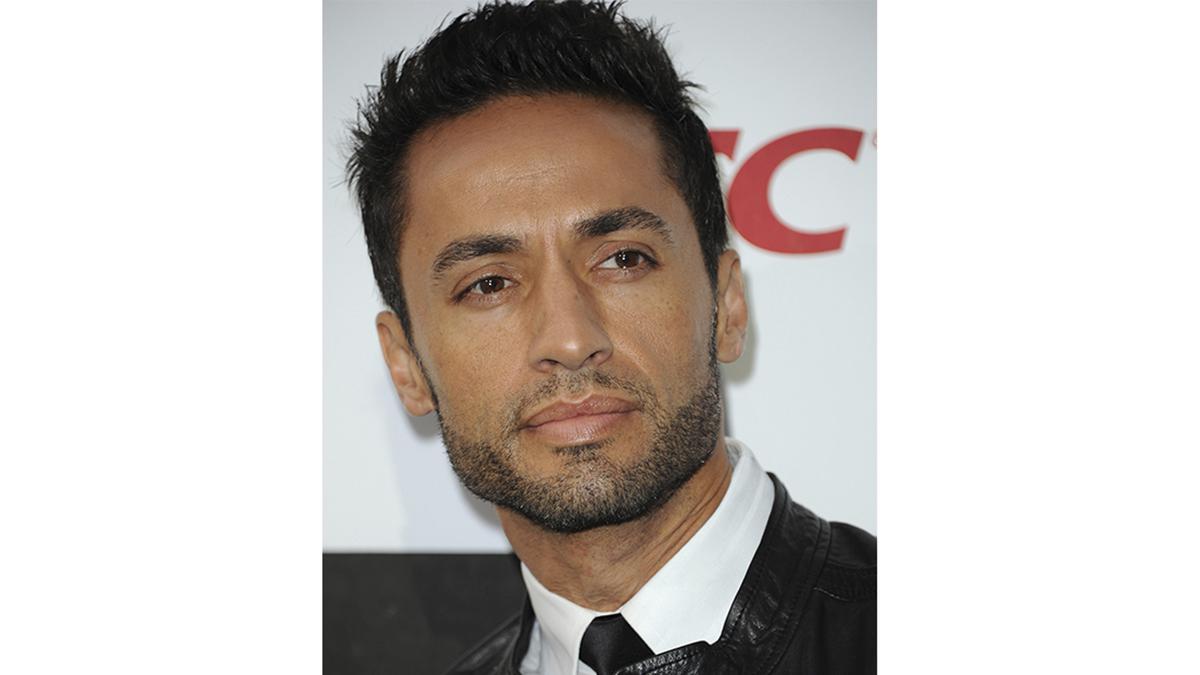
TV actor Kamar de los Reyes of ‘One Life to Live’ and ‘Call of Duty’ no more
The Hindu
De los Reyes died on Sunday following a brief battle with cancer, according to a statement from Lisa Goldberg, a publicist for de los Reyes’ wife, Sherri Saum
Kamar de los Reyes, a television, movie and voice actor best known for playing a gang member-turned-cop in the soap One Life to Live and a villain in the video game Call of Duty: Black Ops II, has died in Los Angeles at 56, the family announced.
De los Reyes died on Sunday following a brief battle with cancer, according to a statement from Lisa Goldberg, a publicist for de los Reyes' wife, Sherri Saum. In One Life to Live, de los Reyes starred as Antonio Vega, a former gang member who became a lawyer and then a cop, alongside Saum.
In the popular video game Call of Duty: Black Ops II, he played the villain Raul Menendez. He also had roles in Fox's Sleepy Hollow, ABC's The Rookie and CW's All American. The family statement said that at the time of his death, de los Reyes was filming All American — and had recently shot roles in Marvel's upcoming Daredevil series and Hulu's yet to be released Washington Black, starring Sterling K. Brown.
De los Reyes was born in Puerto Rico and raised in Las Vegas. According to a biography provided by the family, he caught the bug for acting when he arrived in Los Angeles in the late '80s.
ALSO READ:‘Percy Jackson and the Olympians’ series review: Finally a show that does Seaweed Brain and friends justice
Early roles include playing Pedro Quinn in the 1994 off-Broadway play, Blade to the Heat and Ferdinand in director George C. Wolfe's production of The Tempest for Shakespeare in the Park. On the big screen, de los Reyes appeared in Oliver Stone's Nixon, playing Watergate burglar Eugenio Martinez, as a secret service agent in Salt, with Angelina Jolie, and in The Cell with Jennifer Lopez.
The actor is survived by wife Saum and three sons, Caylen, 26, and twins Michael and John, age 9.

“Writing, in general, is a very solitary process,” says Yauvanika Chopra, Associate Director at The New India Foundation (NIF), which, earlier this year, announced the 12th edition of its NIF Book Fellowships for research and scholarship about Indian history after Independence. While authors, in general, are built for it, it can still get very lonely, says Chopra, pointing out that the fellowship’s community support is as valuable as the monetary benefits it offers. “There is a solid community of NIF fellows, trustees, language experts, jury members, all of whom are incredibly competent,” she says. “They really help make authors feel supported from manuscript to publication, so you never feel like you’re struggling through isolation.”

Several principals of government and private schools in Delhi on Tuesday said the Directorate of Education (DoE) circular from a day earlier, directing schools to conduct classes in ‘hybrid’ mode, had caused confusion regarding day-to-day operations as they did not know how many students would return to school from Wednesday and how would teachers instruct in two modes — online and in person — at once. The DoE circular on Monday had also stated that the option to “exercise online mode of education, wherever available, shall vest with the students and their guardians”. Several schoolteachers also expressed confusion regarding the DoE order. A government schoolteacher said he was unsure of how to cope with the resumption of physical classes, given that the order directing government offices to ensure that 50% of the employees work from home is still in place. On Monday, the Commission for Air Quality Management in the National Capital Region and Adjoining Areas (CAQM) had, on the orders of the Supreme Court, directed schools in Delhi-NCR to shift classes to the hybrid mode, following which the DoE had issued the circular. The court had urged the Centre’s pollution watchdog to consider restarting physical classes due to many students missing out on the mid-day meals and lacking the necessary means to attend classes online. The CAQM had, on November 20, asked schools in Delhi-NCR to shift to the online mode of teaching.









